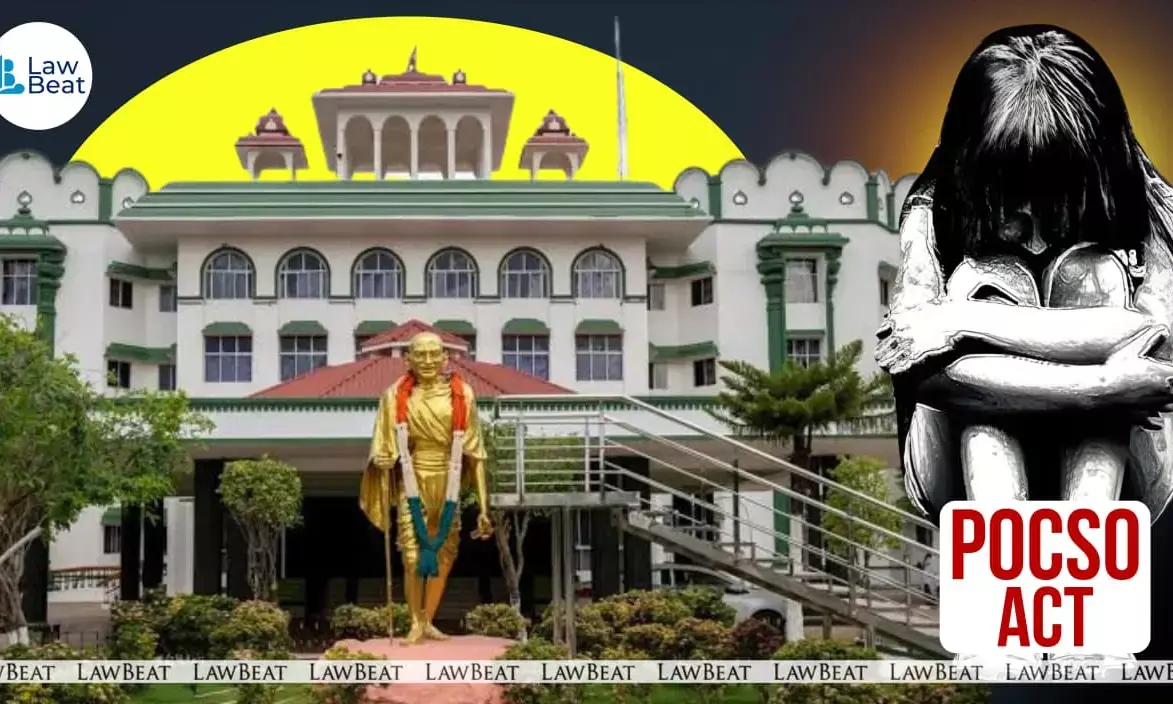‘Grave Error in POCSO Conviction’: Madras HC Sends Trial Judge for Judicial Training

The Madras High Court sets aside POCSO conviction, directs judicial training for trial judge
The Madras High Court at Madurai Bench recently pulled up a trial judge for what it described as a “grave error and illegality” in convicting a man under the POCSO Act on the basis of inadmissible evidence, directing that the judicial officer be sent for mandatory training to understand the “fundamental principles of criminal law".
A division bench of Justices A.D. Jagadish Chandira and R. Poornima, while acquitting the appellant, Palraj, expressed strong disapproval of the manner in which the Special POCSO Court in Dindigul had conducted the trial and arrived at its verdict.
The High Court said the trial court had convicted the accused by relying on statements recorded during the investigation under Sections 161 and 164 of the Code of Criminal Procedure (CrPC), despite clear law that such statements cannot form the basis for conviction. “The trial court, without understanding the fundamental principle of criminal law, had convicted the appellant and thereby committed a grave error and illegality,” the bench remarked.
The bench noted that the victim in the case had turned hostile and categorically denied knowing the accused or being subjected to sexual assault. Yet, the trial court convicted him by relying on her earlier statements made to the police, magistrate, and doctor, all of which, the High Court underlined, were not substantive evidence.
Referring to recent Supreme Court precedents, including Renuka Prasad v. State (2025 INSC 657) and Siva v. State (2022 4 MLJ (Crl) 113), the bench reiterated that statements under Sections 161 and 164 CrPC can be used only for contradiction or corroboration, not for conviction.
“The trial court erred in invoking the presumptions under Sections 29 and 30 of the POCSO Act when the foundational facts were not proved by the prosecution. There was absolutely no legal evidence to find the accused guilty,” the bench observed.
In an stern move, the High Court not only set aside the conviction but also directed administrative action to ensure judicial accountability.
“We are of the opinion that the learned trial Judge who had convicted the appellant based on the statement recorded from the victim during investigation also needs to be sent for judicial training,” the court said.
It directed the Registry to send the judicial officer to the Tamil Nadu State Judicial Academy “to attend training programs to understand the fundamental principles of criminal law".
The bench cited with approval an earlier division bench judgment in Chinnathambi v. Inspector of Police (2016), where similar directions were issued against a Sessions Judge who had convicted an accused based on statements under Section 161 CrPC.
“It is rather unfortunate that a Sessions Judge, who is empowered to impose even the death penalty, is unaware of this fundamental principle of criminal law,” that judgment had observed, words the current bench appeared to echo in spirit.
Setting aside the conviction and ordering the release of the appellant, the High Court further directed that if the victim had received any compensation, the District Collector must recover it, since she had denied the occurrence in her testimony.
Case Title: Palraj vs Inspector of Police, Pattiveeranpatti Police Station, Dindigul District
Bench: Justices A.D. Jagadish Chandira and R. Poornima
